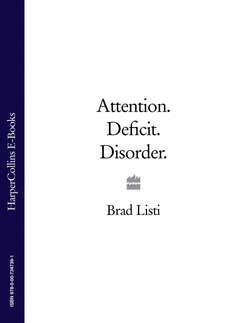Читать книгу Attention. Deficit. Disorder. - Brad Listi - Страница 29
1
ОглавлениеPoint Break is one of my all-time favorite films. I believe it to be one of the funniest films ever made, on par with the comedies of Charlie Chaplin, Buster Keaton, the Marx Brothers, Preston Sturges, Billy Wilder, Blake Edwards, Woody Allen, Harold Ramis, John Hughes, and Wes Anderson. It’s a distinguished member of a movie subgenre that I refer to as the “accidental comedy.”
Accidental comedy is self-explanatory: It occurs when non-come-dies wind up being accidentally hysterical. Action-dramas like Point Break lend themselves well to this phenomenon. Top Gun (1986; Tony Scott, director) is another fine example of accidental comedy.
Point Break. Twentieth Century Fox, 1991. James Cameron, executive producer. Peter Abrams and Robert L. Levy, producers. Rick King and Michael Rauch, co-producers. Donald Peterman, cinematographer. Howard E. Smith and Bert Lovitt, editors. Peter Jamison, production designer. Pamela Marcotte, art director. Linda Spheeris, set decorator. W. Peter Iliff, screenwriter. Based on a story by W. Peter Iliff and Rick King. Directed by Kathryn Bigelow. Rated R.
synopsis:
Keanu Reeves stars as Johnny Utah, a rookie FBI agent working undercover to bring down a team of bohemian bank robbers. Patrick Swayze plays Bodhi (short for Bodhisattva), the charismatic leader of the elusive bandits, a self-professed adrenaline junkie who spends most of his free time engaged in a wide variety of dangerous activities, including (but not limited to) extreme surfing and skydiving. Spouting Zen-like maritime philosophy with the swaggering charm of a California stoner, Bodhi quickly establishes a complicated bond with Special Agent Utah, leading him into a world and way of life that are more dangerous and alluring than the virtuous young lawman had ever dreamt possible.
Here are a few of Bodhi’s most memorable lines in Point Break:
“If you want the ultimate, you’ve gotta be willing to pay the ultimate price. It’s not tragic to die doing what you love.”
“Johnny has his own demons. Don’t you, Johnny?”
“Just feel what the wave is doing. Then accept its energy, get in synch, and charge with it.”
“Fear causes hesitation, and hesitation will cause your worst fears to come true.”
“We can exist on a different plane. We can make our own rules. Why be a servant to the law, when you can be its master?”
“This was never about the money for us. It was about us against the system—that system that kills the human spirit. We stand for something. To those dead souls inching along the freeways in their metal coffins, we show them that the human spirit is still alive.”
“Life sure has a sick sense of humor, doesn’t it?”
I was pretty sure life itself was an accidental comedy.
Back when I was in film school, I had decided that I would one day like to become the first man to direct an intentional accidental comedy. My plan was to write a psychological action-adventure along the lines of Point Break, something unconsciously vapid and stunningly self-serious, something numb to its own rubber heart. I even had a title in mind.
I wanted to call it The Grandeur of Delusions.
delusions of grandeur n.
A delusion (common in paranoia) that you are much greater and more powerful and influential than you really are.
